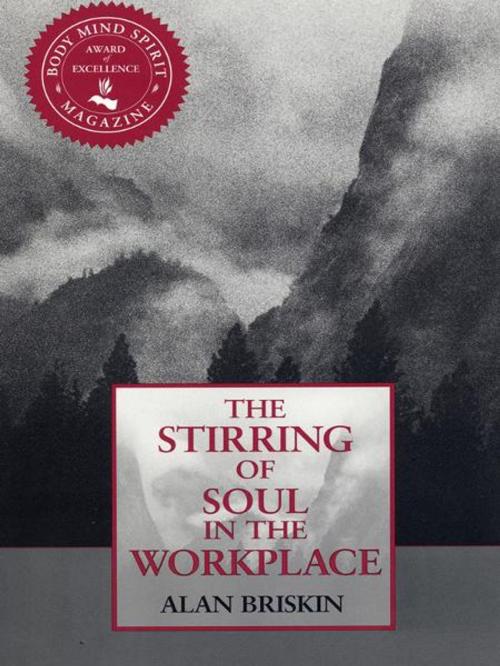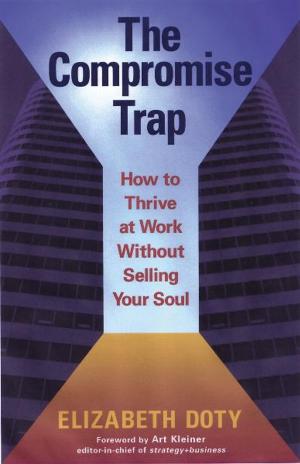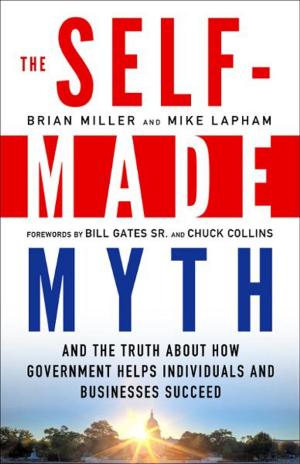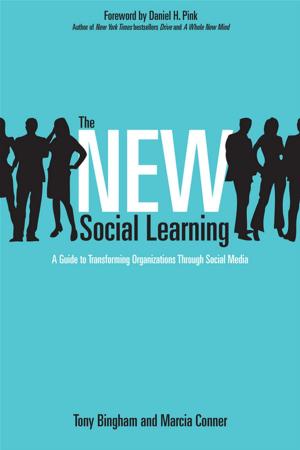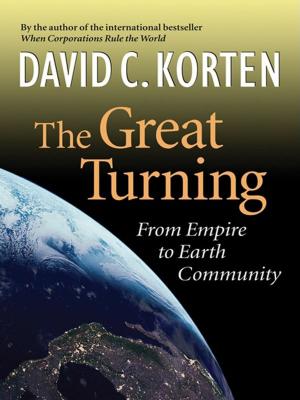| Author: | Alan Briskin | ISBN: | 9781609943967 |
| Publisher: | Berrett-Koehler Publishers | Publication: | December 28, 1998 |
| Imprint: | Berrett-Koehler Publishers | Language: | English |
| Author: | Alan Briskin |
| ISBN: | 9781609943967 |
| Publisher: | Berrett-Koehler Publishers |
| Publication: | December 28, 1998 |
| Imprint: | Berrett-Koehler Publishers |
| Language: | English |
This deeply lyrical book offers perspective for those struggling to hear the quiet voice of the soul over the din of the contemporary workplace. Alan Briskin shows how the modern organization has gradually increased its demands on us-beginning with our bodies, then our minds, and now our souls. But through the moving personal stories of people fighting to reclaim their souls, he also sends a message that encourages individuals to keep their spiritual integrity and values alive. In The Stirring of Soul In the Workplace, Briskin weaves together lessons from history, psychology, and management theory, with numerous real-life examples, to tell the story of how the modern workplace has evolved to value technology and productivity over soulfulness and relationship. From the Industrial Revolution's marriage of mechanization and efficiency to the management theories of the early 20th century, Briskin traces the emergence of the quest for efficiency and control in the workplace. He questions the corporate concept of "individual personality" that asks us to check our emotions, fantasies, imaginations, and souls at the door. He describes the history of the soul as a dynamic force that continues to influence our behavior, and shows how excluding it from our work life actually flattens our potential and dampens our creativity. Rather than solve the conventional question organizations have been asking for years-how can we change people?-Alan Briskin examines how organizations can better reflect personal and human values in the workplace. For organizations that too often have sacrificed the well-being of the individual for the goals of the organization, the author suggests a more active way of taking up our work roles that can bring more of our experience and imagination into play. He points out that meaning cannot come from corporate mission statements or reengineering programs. Instead, it needs to be nurtured through dialogue and reflection, the courage to ask troubling questions, and a willingness to face the consequences of our collective and individual actions. When we learn to honor the contradictions, uncertainties, and interconnections inherent in the workplace, the energies of the soul will begin to stir with revitalizing results.
This deeply lyrical book offers perspective for those struggling to hear the quiet voice of the soul over the din of the contemporary workplace. Alan Briskin shows how the modern organization has gradually increased its demands on us-beginning with our bodies, then our minds, and now our souls. But through the moving personal stories of people fighting to reclaim their souls, he also sends a message that encourages individuals to keep their spiritual integrity and values alive. In The Stirring of Soul In the Workplace, Briskin weaves together lessons from history, psychology, and management theory, with numerous real-life examples, to tell the story of how the modern workplace has evolved to value technology and productivity over soulfulness and relationship. From the Industrial Revolution's marriage of mechanization and efficiency to the management theories of the early 20th century, Briskin traces the emergence of the quest for efficiency and control in the workplace. He questions the corporate concept of "individual personality" that asks us to check our emotions, fantasies, imaginations, and souls at the door. He describes the history of the soul as a dynamic force that continues to influence our behavior, and shows how excluding it from our work life actually flattens our potential and dampens our creativity. Rather than solve the conventional question organizations have been asking for years-how can we change people?-Alan Briskin examines how organizations can better reflect personal and human values in the workplace. For organizations that too often have sacrificed the well-being of the individual for the goals of the organization, the author suggests a more active way of taking up our work roles that can bring more of our experience and imagination into play. He points out that meaning cannot come from corporate mission statements or reengineering programs. Instead, it needs to be nurtured through dialogue and reflection, the courage to ask troubling questions, and a willingness to face the consequences of our collective and individual actions. When we learn to honor the contradictions, uncertainties, and interconnections inherent in the workplace, the energies of the soul will begin to stir with revitalizing results.
